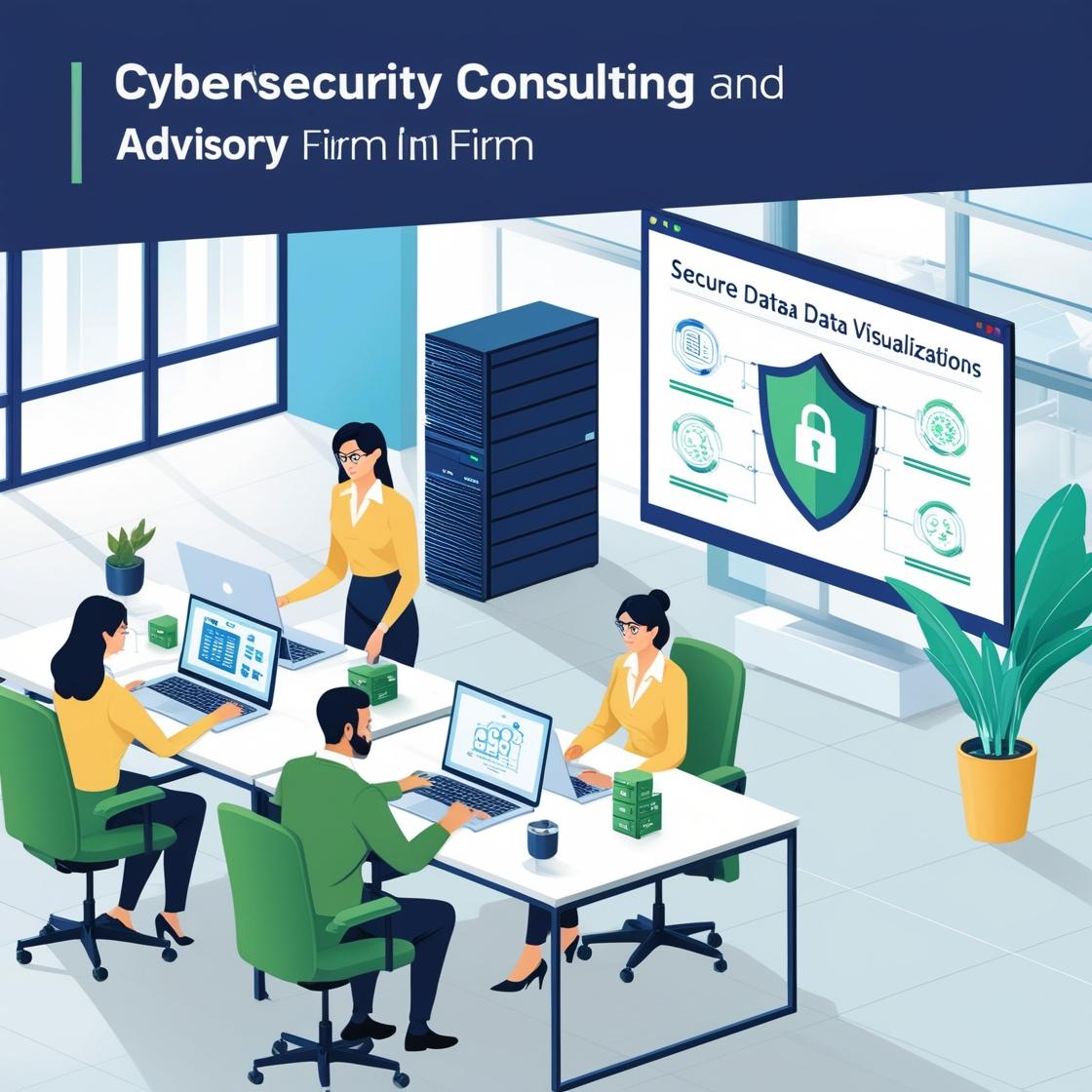Experienced Staff
Our experts have been featured in press numerous times.

Ethical Hacking is the practice of legally and responsibly testing the security of computer systems, networks, or applications to identify vulnerabilities that could be exploited by malicious hackers. Often referred to as "white hat hackers," ethical hackers work with the consent of organizations to strengthen their security measures and safeguard sensitive data. Their primary goal is to improve the security posture of systems without causing harm or disruption. Ethical hacking involves several key phases, including reconnaissance, scanning, gaining access, maintaining access, and analysis with detailed reporting. These professionals utilize the same tools and techniques as malicious hackers, such as Nmap, Wireshark, Metasploit, and Kali Linux, but operate within a legal framework. Essential skills include knowledge of networking, operating systems, programming, and web security. Ethical hacking plays a crucial role in securing sensitive data, preventing fraud, and ensuring compliance with regulations, making it an indispensable practice in modern cybersecurity.
It is a critical aspect of modern cybersecurity, where skilled professionals, known as "white hat hackers," use their expertise to identify and mitigate vulnerabilities in systems, networks, and applications. Unlike malicious hackers, ethical hackers operate with full authorization and within legal boundaries to protect sensitive data and organizational assets. Their work involves simulating real-world cyberattacks to uncover weaknesses that could be exploited by malicious actors. Ethical hacking follows a structured methodology, including reconnaissance, scanning, exploitation, and detailed reporting, to ensure that vulnerabilities are identified and addressed effectively.
These professionals rely on a wide array of tools, such as Nmap for network discovery, Wireshark for traffic analysis, Metasploit for penetration testing, and Burp Suite for web application security. Their skills span networking, operating systems, programming languages like Python and C, and a deep understanding of web security principles. Ethical hacking plays a pivotal role in safeguarding financial systems, protecting customer information, securing intellectual property, and maintaining regulatory compliance. As cyber threats evolve, ethical hacking continues to be a cornerstone of proactive defense strategies, ensuring that organizations remain resilient against ever-changing attack vectors.

Private Cyber Crime Investigation involves the specialized process of identifying, analyzing, and resolving cybercrimes conducted by private entities or organizations, often in collaboration with law enforcement. These investigations focus on incidents such as data breaches, hacking, financial fraud, identity theft, and cyberstalking, which impact individuals or companies. Unlike public sector investigations, private investigations are typically initiated by businesses or individuals seeking to protect their interests, recover lost assets, or ensure legal compliance. Investigators use advanced tools and techniques to trace digital footprints, recover deleted data, analyze logs, and identify perpetrators. The goal is not only to determine how the crime occurred but also to provide actionable insights to prevent future incidents.
Private cybercrime investigators must possess expertise in digital forensics, cybersecurity, and laws governing cybercrimes. They work meticulously to collect evidence while ensuring its integrity for use in potential legal proceedings. Their tasks often include analyzing compromised systems, identifying entry points, and mapping the extent of the damage. They also assist organizations in understanding vulnerabilities and implementing robust security measures to prevent recurrence. As cyber threats grow more sophisticated, private cybercrime investigation services are becoming indispensable for organizations aiming to safeguard sensitive information and maintain trust in an increasingly digital world.

Smart Contract Audit is a systematic process of reviewing and analyzing the code of smart contracts to identify vulnerabilities, ensure functionality, and verify adherence to best practices in blockchain development. Smart contracts, which are self-executing agreements with terms directly written into code, often manage critical operations such as financial transactions, token issuance, and decentralized applications (DApps). Because they operate on blockchain platforms like Ethereum, once deployed, they are immutable and cannot be easily altered to fix issues, making audits essential before deployment.
During an audit, experts assess the smart contract for common vulnerabilities such as reentrancy attacks, integer overflows/underflows, access control flaws, and denial-of-service risks. Auditors also test the contract’s logic to ensure it behaves as intended under various scenarios, including edge cases. This process typically involves both manual code reviews and automated tools like MythX, Slither, and Oyente to catch potential issues. The audit concludes with a detailed report outlining identified vulnerabilities, their severity levels, and recommended fixes. A thorough smart contract audit enhances security, builds user trust, and ensures compliance with blockchain standards, playing a crucial role in the reliability and success of blockchain projects.

IT Audit and Assurance is the process of evaluating and verifying an organization's IT systems, infrastructure, and processes to ensure they are secure, reliable, and aligned with business objectives and compliance requirements. IT audits focus on assessing the effectiveness of controls related to IT governance, risk management, data integrity, and cybersecurity. The primary objective is to identify potential risks, ensure systems are functioning efficiently, and verify compliance with regulatory standards like GDPR, HIPAA, or ISO 27001. This process plays a critical role in safeguarding digital assets and maintaining stakeholder trust in the organization's technology ecosystem.
An IT audit typically involves reviewing hardware, software, network infrastructure, and policies to identify vulnerabilities or inefficiencies. Auditors evaluate areas such as access controls, data protection, disaster recovery, and system availability. Assurance goes a step further by providing stakeholders with confidence that IT processes meet established criteria and operate as intended. The process often includes testing controls, reviewing compliance documentation, and providing recommendations for improvement. By conducting regular IT audits and assurance activities, organizations can proactively mitigate risks, enhance system reliability, and align their technology investments with strategic goals.

Policy Development and Review is the structured process of creating, evaluating, and updating organizational policies to ensure they align with goals, comply with regulations, and effectively address operational needs. Policies serve as formal guidelines that define expectations, responsibilities, and procedures for employees, stakeholders, and management. The development process involves identifying the purpose of the policy, researching applicable laws and industry standards, and drafting clear, concise, and actionable content tailored to the organization's context. Engaging relevant stakeholders during this phase ensures that the policy is comprehensive and practical.
The review process is equally important, as it ensures policies remain relevant amidst evolving business environments, regulatory changes, and technological advancements. Regular reviews involve assessing the policy's effectiveness, identifying gaps or ambiguities, and updating it to reflect current requirements. This process typically includes consulting with subject matter experts, legal advisors, and affected teams to gather input. A well-developed and regularly reviewed policy framework not only supports compliance and risk management but also fosters consistency, accountability, and operational efficiency within an organization.

Regulatory Compliance Management is the systematic approach organizations use to ensure that their operations, processes, and activities adhere to applicable laws, regulations, and industry standards. This involves understanding and implementing the specific requirements set by regulatory bodies and ensuring ongoing compliance across all aspects of the business. Effective compliance management helps mitigate risks, avoid legal penalties, and maintain operational integrity. Organizations must stay informed about changes in laws and regulations, especially in highly regulated industries like healthcare, finance, and manufacturing.
The process of regulatory compliance management includes identifying relevant regulations, developing internal policies and procedures to meet these requirements, training employees, and establishing monitoring mechanisms to track compliance. Regular audits, assessments, and reviews are conducted to evaluate the effectiveness of compliance efforts, identify potential gaps, and make necessary adjustments. The goal is to create a culture of compliance where legal, ethical, and regulatory standards are integrated into daily business operations, ensuring that the organization operates transparently and responsibly.
Regulatory compliance management involves ensuring that your business complies with applicable laws, regulations, and industry standards. We help organizations develop and implement policies to meet compliance requirements, conduct audits, and stay updated with changes in regulations.
A smart contract audit is a review of blockchain-based contract code to identify vulnerabilities, errors, or risks before deployment. It’s critical because smart contracts are immutable once deployed, and any flaws could result in significant financial loss or security breaches.
To get started, simply reach out to us through our contact form or by phone. We’ll schedule an initial consultation to discuss your needs and provide a customized plan to help you achieve your goals.
Our team consists of experienced professionals who specialize in cybersecurity, IT audits, and regulatory compliance. We have a proven track record of delivering high-quality solutions and ensuring our clients' systems are secure and compliant.

Our fast service ensures rapid identification, analysis, and remediation of vulnerabilities to minimize security risks and disruptions.

Real-time reporting provides instant insights into vulnerabilities, their severity, and actionable remediation steps to keep your systems secure

Our expert team of certified cybersecurity professionals delivers tailored, cutting-edge solutions to protect your business from evolving threats.
Our experts have been featured in press numerous times.

